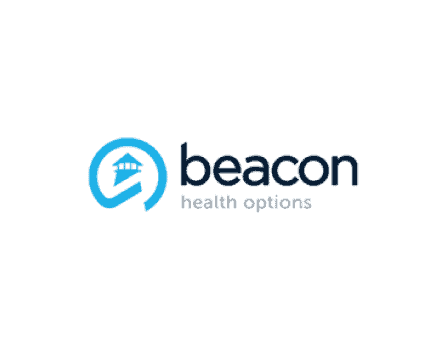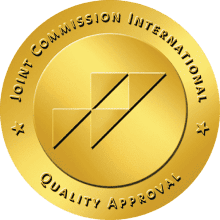Methamphetamine Addiction: Meth Addiction Treatment
Meth addiction is a debilitating and potentially life-threatening medical condition often requiring targeted substance abuse treatment. Our effective and comprehensive meth addiction treatment program includes both medical and psychological rehab components provided by highly experienced addiction professionals.

What Is Crystal Meth?
Methamphetamine, also referred to as meth or crystal meth, is an illicit stimulant that is highly addictive. Meth is a man-made psychostimulant drug that accelerates the brain’s functions and impacts the central nervous system, leading to prolonged effects on the body. It has many nicknames, such as crystal, speed, zoom, go, crank, ice, dunk, glass, rock candy, christina, poor man’s cocaine, and shards.
Crystal methamphetamine can be taken as a pill, injected directly into the bloodstream, inhaled, or smoked. Its appearance ranges from small fragments resembling glass to an odorless, bitter-tasting powder, and its color varies from clear to pink or off-white to brown, based on the ingredients used in its production.
While commonly known for its illegal use and devastating impacts, meth is a Schedule II drug, which means it has accepted medical uses, such as treating narcolepsy and attention-deficit hyperactivity disorder (ADHD). In addition, pharmaceutical versions of meth may also be prescribed for extreme cases of obesity. However, due to the substantial potential for misuse and dependency associated with this medication, it is only prescribed in rare cases, as the consequences of chronic meth use are severe and destructive.
Symptoms of Meth Addiction
There are many physical side effects of prolonged meth abuse, including tooth decay or “meth mouth,” body sores, weight loss, hair loss, and outward signs of premature aging caused by tissue and blood vessel damage.
Alongside these physical manifestations, chronic methamphetamine use can induce changes in brain chemistry, leading to a range of psychological effects, including aggressive behavior, compulsive thoughts and behaviors, and even psychosis—a mental illness that disrupts one’s thoughts and emotions. It’s common for meth addicts to be mistakenly diagnosed with mental illnesses like schizophrenia. Psychosis can produce extreme paranoia, delusions, and hallucinations, including the disturbing sensation of imaginary parasites crawling beneath the skin. The effects of psychosis can persist for months or even years after meth users discontinue use.
Although sustained abstinence may yield partial recovery of cognitive function and improved emotional well-being, a complete restoration of normal brain functioning remains uncertain. In essence, overcoming meth addiction requires time and commitment, with the realization that one may never fully regain their pre-addiction state of mind.
Other symptoms and side effects of meth addiction include:
- Decreased appetite
- Erratic mood swings
- Anxiety
- Disorientation or confusion
- Increased body temperature (hypothermia)
- Small wounds (“speed bumps”) from injections
Identifying these signs can indicate potential methamphetamine use and may prompt the need for intervention or professional assistance.
Long-Term Effects of Meth Use and Addiction
Upon initial use, meth triggers the release of substantial amounts of dopamine, a neurotransmitter linked to pleasure, reward, and motivation. This dopamine surge leads to an intense and lasting rush of euphoria, giving the illusion of enhanced power and productivity. Meth users may become more socially outgoing, overly talkative, and exhibit restless behavior despite their diminished ability to function productively. However, the reality of meth use is far from the euphoria it initially induces.
Long-term meth abuse can cause changes to the brain’s dopamine system, resulting in severe cognitive issues, such as problems with learning, memory, and coordination. It can also damage nerve terminals, increasing the risk of physical and psychological illnesses, including conditions like Parkinson’s disease—a neurological condition that causes tremors and difficulty with coordination and movement.
Methamphetamine abuse also contributes to various cardiovascular issues, such as cardiac arrhythmia, myocardial infarction, stroke, and seizures. It often leads to extreme and unhealthy weight loss and even death.
Meth use also creates a dangerous cycle of tolerance and dependence. Over time, the brain becomes less responsive to the drug, leading users to increase their dosage to recreate the initial euphoria. This sustained meth use can lead to anhedonia, a condition characterized by the inability to derive pleasurable effects from ordinary activities due to depleted dopamine levels.
While some brain changes associated with meth use may improve with extended abstinence, certain effects may be permanent. Meth addiction, therefore, represents a destructive cycle with potentially irreversible consequences, underscoring the critical need for timely and adequate treatment.
Get Answers to Your Questions Now
Are you looking for information on addiction treatment options, or just need someone to talk to? We are here to help. The treatment specialists at Hillside Detox are available 24/7 to offer support, resources, and care for you or your loved one.
How Is Methamphetamine Use Disorder Diagnosed?
The diagnosis of substance abuse disorder is primarily based on a thorough clinical evaluation that involves a medical professional interviewing the individual about their patterns of drug use and the impact on their daily life.
It’s important to note that not everyone who has tried methamphetamine develops an addiction. Some individuals may dabble with the substance a handful of times and then completely refrain from further usage. However, for others, the scenario could lead to a full-blown substance use disorder.
Stimulant use disorder is a recognized mental health condition typically identified when an individual exhibits serious issues related to the use of stimulant drugs, which include methamphetamine. Healthcare providers often look for the following symptoms:
- Consuming methamphetamines in larger amounts or over a longer period than intended.
- Persistent desire or unsuccessful attempts to cut down or control methamphetamine use.
- Continuing methamphetamine use despite it causing significant problems in one’s life.
How Do You Know If You Need Substance Abuse Treatment for Meth Addiction?
Diagnosing a methamphetamine use disorder isn’t just about checking off a list of symptoms to meet all the clinical criteria; it’s also about assessing the overall impact of the drug use on your life. If your use of methamphetamine is leading to problems in any major areas of life – such as difficulties at work or school, conflicts in your relationships, legal troubles, or health problems – then these are clear signs that you could benefit from professional meth treatment.
Additionally, if you’ve made unsuccessful attempts to quit or cut down on your own or if you’re experiencing methamphetamine withdrawal symptoms when you try to stop, these are also strong indicators that meth treatment could be beneficial.
Signs of meth withdrawal:
- Increased appetite: As methamphetamine often suppresses appetite, withdrawal may result in a sudden increase in hunger.
- Fatigue and sleep disturbances: Extreme tiredness and oversleeping are common, although some individuals may also suffer from insomnia.
- Intense meth cravings: The desire to consume meth can be particularly strong and may persist for an extended period.
- Depression: Feelings of sadness, hopelessness, and lack of interest in previously enjoyed activities can manifest during withdrawal.
- Anxiety: Individuals may experience increased nervousness, restlessness, and feelings of panic.
- Psychosis: In severe cases, withdrawal can cause symptoms like hallucinations, delusions, and paranoia, similar to those experienced during heavy meth use.
- Physical discomfort: This can include aches, pains, headaches, and even flu-like symptoms.
- Suicidal ideation: Some individuals may experience severe depression leading to thoughts of suicide.
Once the cravings subside, patients can actively participate in meth treatment programs to facilitate their recovery.
Is There a Cure for Crystal Meth Addiction?
While there is not a specific “cure” for crystal meth addiction, substance use disorders can be effectively managed and addressed through a combination of physical and psychological approaches. Much like chronic illnesses such as diabetes or heart disease, addictions can be controlled with the right treatment and ongoing care.
Medical treatment options for meth addiction encompass medically supervised detox, inpatient addiction treatment, partial hospitalization, intensive outpatient programs, and outpatient rehabilitation. These comprehensive programs aim to provide individuals with the necessary support and resources to overcome their methamphetamine addiction and achieve lasting recovery.
Types of Drug Abuse Treatment for Methamphetamine
There are a variety of programs available to treat meth addiction. However, the most effective meth addiction treatment programs combine medical detoxification with behavioral therapies, cognitive therapies, mental health services, support groups, and relapse prevention strategies.
Many studies showcase that understanding the cognitive functioning of patients is crucial for effective treatment. According to the Substance Abuse and Mental Health Services Administration, cognitive-behavioral therapy (CBT) plays a pivotal role in helping meth users to recognize and change any thought patterns or harmful behaviors that perpetuate their addiction, as well as replacing them with healthy coping skills to prevent relapse. The National Institute on Drug Abuse describes cognitive-behavioral strategies as a way to address problematic behaviors and develop alternative skills to overcome drug abuse. By identifying triggers and cravings early on, individuals can learn effective coping strategies to manage their addiction.
While the approaches listed here have shown positive treatment outcomes for many former meth users, the best approach to treating meth addiction depends on individual circumstances and preferences. Recovery is often a non-linear process, and it may require exploring various treatments until you find what works best for you. Outlined below are some of the most common treatment approaches for methamphetamine addiction:
Medical Detox
Many individuals struggling with methamphetamine use disorder will need to go through a medical detox program immediately after they stop using. Prolonged use of methamphetamine (or any drug) causes your body to adapt to its presence. When you stop using, your body needs to adjust and rebalance itself, which can be difficult and dangerous. During this time, you may experience uncomfortable and painful meth withdrawal symptoms.
Meth withdrawal symptoms are not generally as medically severe or physically distressing as those linked to other drugs, however, they still may necessitate the prescription of certain medications to manage specific symptoms. While there are no FDA approved medications specifically for treating meth addiction, substances like Benadryl or trazodone may be utilized to treat insomnia within a detox or rehab environment, while antidepressants can help mitigate severe depressive symptoms.
Medical detox programs offer a safe and supportive environment to manage the physical effects of meth withdrawal while also addressing other complications that can arise during this phase. They also provide emotional support and guidance through withdrawal, which can help those in recovery to stay focused and motivated. Often, this stage of meth abuse treatment is an essential initial step in treating methamphetamine dependence, paving the way for subsequent, more targeted treatments.
Behavioral Therapies
The Matrix Model
The Matrix Model is an evidence-based approach specifically designed for the treatment of stimulant addiction, including methamphetamine and cocaine. This program incorporates elements of CBT, family therapy and education, individual counseling, 12-step support, drug testing, and promotion of non-drug-related activities. The therapy sessions are structured and follow a set curriculum, often conducted in a group format.
The Matrix Model incorporates three types of interventions to aid in the recovery process, including:
- Educating participants about the nature of methamphetamine addiction and its effect on their physical and mental health.
- Assisting participants in building connections with community-based resources and support systems.
- Implementing regular urine analyses (drug tests) to monitor progress and maintain accountability throughout the recovery journey.
Contingency Management
Contingency management (CM) is a behavioral therapy that uses tangible rewards as motivation for maintaining sobriety and commitment to treatment. Rewards may include vouchers, redeemable for items such as groceries or event tickets. These rewards are typically given for submitting a drug-free urine sample or attending each treatment session.
Simply put, CM and similar approaches focus on positive reinforcement rather than punishing negative behavior. This reward-based treatment model has been shown to be highly effective in treating stimulant use disorders, including methamphetamine addiction. Studies have also revealed that those undergoing a CM-based treatment are significantly more likely to complete their program in comparison to those in conventional care.
At Hillside Detox, a licensed and accredited team of medical professionals and addiction specialists employ evidence-based approaches to drug addiction treatment. We offer various treatment options, including behavioral & cognitive therapies, twelve step facilitation, and medication-assisted therapies. If you or someone you know is struggling with drug addiction, contact us to explore rehab options and get on the path to recovery.
What Additional Resources Are Available for Someone With a Substance Use Disorder?
For those struggling with addiction, additional resources are available beyond medical treatment to help you manage your addiction. Some of which include:
Community Support Groups
Alcoholics Anonymous (AA), Narcotics Anonymous (NA), SMART Recovery Groups, and other community groups are designed to provide peer-to-peer support for those recovering from drug or alcohol addiction. These organizations are established in many communities worldwide and offer individuals a safe place to share their stories, find strength in numbers, and develop relationships with people who understand the challenges of recovery.
The key advantages of these support group networks are their accessibility and affordability—they’re free and prevalent across many communities. However, it’s crucial to remember that these support groups are facilitated by peers, not licensed professionals, and may not be enough if specialized, professional treatment is required.
Sober Living Facilities
For those seeking additional support, choosing to reside in a recovery residence could be a valuable option. Sober living facilities serve as an important bridge between inpatient treatment and the return to normal life. These facilities are housing options that provide a supportive, structured living environment for individuals in recovery. The residents pay monthly rent and live alongside others who are also in recovery, promoting mutual support and accountability. The main goal of sober living facilities is to help individuals maintain their sobriety as they transition back into the community after treatment.
Overcome Meth Addiction at Hillside Detox
If you or a loved one is struggling with methamphetamine addiction, don’t hesitate to reach out to our dedicated team. We are here to guide you through the treatment process and provide the support and care you deserve. Contact us today to learn more about our treatment programs and take the first step toward a healthier and brighter future.
Most Insurance Plans Accepted





Addiction Treatment Programs
Verify Your Insurance
"*" indicates required fields
World Class Amenities
- Cell phones allowed
- Gym and fitness center
- Onsite spa services
- Entertainment theater
- Recreation room
- Support animal friendly
Ready to Get Help?
We have helped countless individuals empower themselves to recover and get the substance use and mental health treatment they need. Know that you’re not alone in this, we are here to help.

We Are Here to Help
Contact us through the confidential form below for assistance on how to find Alcohol Detox, Alcohol Rehab, and a Drug Addiction Treatment Center in Massachusetts.
"*" indicates required fields
